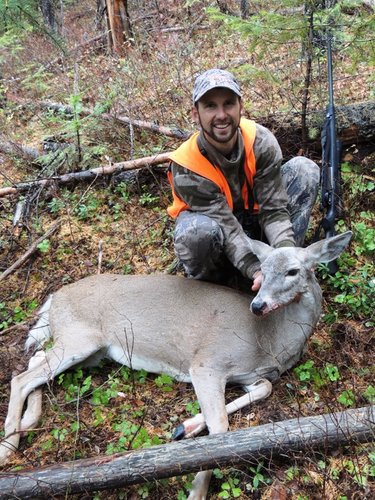HSi-ESi
Well-known member
I know a lot of people who have no hunting for food, but have a problem with "trophy" hunting. Even if you claim to eat the meat there is the perception that you are taking the best out of the gene pool, the opposite of what predators do. What should hunters say to that?
Before this thread goes too far down a Shoulder Season / Gardiner wormhole....
I would also point out that predators don't always go after the "sick, old animals". Many times it may be a bull in his prime that is simply vulnerable. If that bull is weakened after rut, harsh winter conditions, etc then wolves have a chance.
Prime cows during calving are susceptible as well.
So predation is not always "survival of the fittest".





